OpenStack vs VMware vCloud
May 18, 2023 | Author: Michael Stromann
19
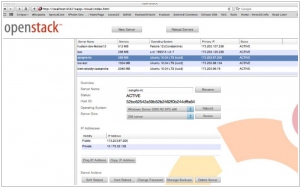
OpenStack is a global collaboration of developers and cloud computing technologists producing the ubiquitous open source cloud computing platform for public and private clouds. The project aims to deliver solutions for all types of clouds by being simple to implement, massively scalable, and feature rich. The technology consists of a series of interrelated projects delivering various components for a cloud infrastructure solution.
11
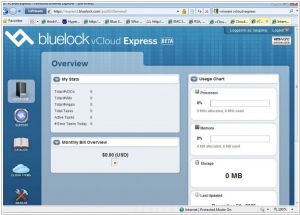
Start moving toward secure cloud computing with VMware vCloud solutions and services. Leverage the power of cloud computing while retaining the flexibility and open standards to support your existing IT infrastructure. Enabling IT as a service through cloud computing gives you a more efficient, flexible and cost-effective model.
OpenStack and VMware vCloud are both cloud computing platforms, but they differ in their architecture, approach, and target audience. OpenStack is an open-source cloud operating system that allows organizations to build and manage private or public clouds. It provides a set of modular components for compute, storage, and networking, enabling users to create and manage cloud infrastructure with flexibility and customization. OpenStack emphasizes open standards and interoperability, making it a popular choice for organizations seeking vendor-agnostic cloud solutions. On the other hand, VMware vCloud is a cloud computing platform that extends VMware's virtualization technology to the cloud. It enables organizations to create and manage virtualized infrastructure in a cloud environment using familiar VMware tools and workflows. VMware vCloud is well-suited for organizations that have invested heavily in VMware virtualization technologies and want to extend their infrastructure to the cloud seamlessly.
See also: Top 10 Public Cloud Platforms
See also: Top 10 Public Cloud Platforms
OpenStack vs VMware vCloud in our news:
2019. VMware completes $2.7 billion Pivotal acquisition
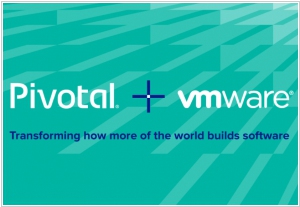
VMware has successfully completed the $2.7 billion acquisition of Pivotal, a private cloud platform. This acquisition serves as another crucial step for VMware as it strives to transition from solely a virtual machine company to a cloud-native provider capable of managing infrastructure across various environments. This addition aligns with VMware's recent acquisitions of Heptio and Bitnami, further reinforcing its strategic vision. The ultimate goal is to seamlessly integrate these developments into VMware Tanzu, a comprehensive management platform designed to unify Kubernetes containers and VMware virtual machines.
2017. VMware Cloud is now live on Amazon Web Services

Last autumn, VMware and AWS announced a strategic partnership, and now they have unveiled a unified solution for enterprises called VMware Cloud on AWS. VMware Cloud on AWS offers customers a seamlessly integrated hybrid cloud environment that maintains consistent architecture, capabilities, and operational experience across their on-premises vSphere-based infrastructure and AWS. Although AWS operates its own virtual machines (VMs), they differ from those used by VMware in data centers. This disparity poses management challenges for companies seeking to utilize both platforms. By enabling organizations to migrate to AWS while retaining their VMware VMs in the public cloud, they can enjoy the benefits of both worlds without encountering management complexities.
2016. Rackspace offers ready-to-use Openstack private clouds
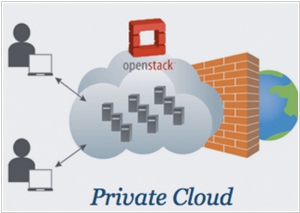
Rackspace has been a long-standing provider of enterprise solutions for managing private OpenStack deployments. However, until now, companies were required to build their own hardware and infrastructure. A significant development now allows enterprises seeking to transition to OpenStack for their private cloud deployments to rely on Rackspace for the complete process, from building and monitoring the infrastructure to managing the OpenStack clouds at every level, including the software stack. Rackspace's expert employees will oversee all aspects of the deployments and assist customers in smoothly transitioning to their new cloud environments. Customers availing this service can expect an impressive 99.99 percent uptime Service Level Agreement (SLA) from Rackspace, although it is important to note that events such as power failures in data centers are beyond the company's control. Rackspace is prepared to install these new private clouds in virtually any data center globally, and it has also partnered with Equinix to expedite and simplify deployments in the data centers operated by the latter.
2015. Google is joining OpenStack
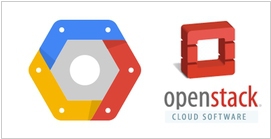
Google has recently become a corporate sponsor of the OpenStack Foundation, demonstrating its commitment to the open-source project. This sponsorship entails an annual contribution of $25,000. Google's focus within the project will revolve around Linux containers, as well as the integration of the Kubernetes container management tool, which was developed by Google, into OpenStack. Notable corporate sponsors of OpenStack include Alcatel-Lucent, Citrix, Comcast, Cray, GoDaddy, Fujitsu, Oracle, SAP, Nokia, and the Linux Foundation. Beyond the financial commitment, Google's involvement signifies a symbolic gesture due to its prior engagement with the project. The company has previously collaborated with OpenStack on various initiatives, such as the Murano application catalog and the Magnum container orchestration service. Google intends to contribute engineering resources to further support the project's advancement.
2015. VMware will make Google Cloud Platform available to its customers
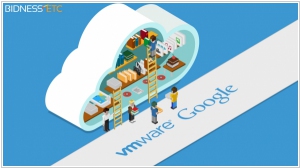
Google and VMware have joined forces to offer selected services from the Google Cloud Platform to VMware customers through vCloud Air, VMware's hybrid cloud platform. Later this year, vCloud Air users will gain access to Google's BigQuery analytics, Google Cloud Storage, as well as Google's Datastore and DNS services. Other Google services may also become available in the future. This collaboration can be seen as a win for both companies. VMware gains four valuable Google services, including the robust BigQuery analytics, which can help attract enterprise customers. Meanwhile, Google has the opportunity to showcase its top-notch intellectual property to the enterprise cloud users it seeks. Google aims to strengthen its hybrid cloud offerings, while VMware aims to demonstrate its cloud platform's compatibility with major players like Amazon Web Services (AWS).
2014. VMware's cloud to support Docker, Google and Pivotal containers

VMware is collaborating with Docker, Google, and Pivotal to ensure seamless compatibility between container technology and its virtualization technology. This joint effort will enable developers and operations staff to utilize the Docker Engine alongside VMware's vSphere hypervisor and vCloud Air environment. VMware will also engage in collaborative projects with Docker on various open-source container initiatives within the Docker platform. The company is committed to ensuring that future Docker projects seamlessly integrate with the broader VMware platform. Additionally, VMware's software will effectively support Google's Kubernetes container management system. In its partnership with Pivotal, VMware has already been leveraging containers in conjunction with virtual machines as part of its application development platform since 2011.
2014. VMware integrates its cloud management tools with OpenStack
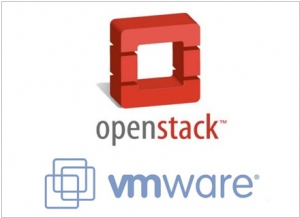
Virtualization giant VMware has announced the integration of its lineup of tools with the OpenStack open-source cloud framework. This new service is scheduled for release in the first half of 2015. With this integration, organizations that have an OpenStack cloud infrastructure in place will have the capability to manage it using VMware's tools through their IT operations staff. Additionally, organizations running data centers and equipment based on the VMware stack will be able to seamlessly synchronize them with other equipment running on OpenStack. It is worth noting that OpenStack was initially developed as an alternative to VMware's private cloud and Amazon's public cloud. VMware's Integrated OpenStack appears to challenge the idea held by OpenStack purists who prefer a private cloud built on multiple open-source components.
2012. Surprise! VMWare has joined OpenStack
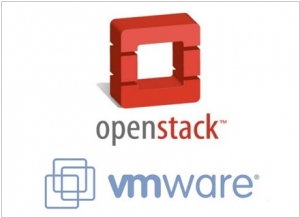
Recently we found out that the open cloud platform alliance OpenStack includes several members from EMC. It was a surprise, because EMC owns VMWare - the direct competitor of OpenStack. We thought that it was a little misunderstanding in the Swedish family EMC-VMWare. But this wasn't the last surprise in this story. In the end of the last week, VMWare personally became the "Gold member" in OpenStack. (Recall, OpenStack was founded two years ago in order to struggle against the dominance of Amazons's public cloud and VMWare's data-center cloud management systems). Together with VMWare two more giants: Intel and NEC joined OpenStack on Friday. So now, on the cloud platform market we have the confrontation: Amazon vs "Everyone else". You may think that the forces are not equal, but ... ***
2012. OpenStack - is like the Soviet Union. Who develops OpenStack?
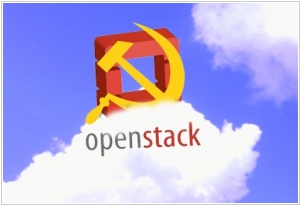
Last week, RackSpace has launched the open platform OpenStack in its cloud. And though HP has done the same a little earlier, but in HP Cloud OpenStack is running in beta mode, but in RackSpace Cloud - anyone already can start using OpenStack for business needs. So now all these debates what is more cool, Amazon Web Services or OpenStack will go into practical area. And the last theoretical debates took place shortly before the launch at the GiGaOm Structure conference. And at this conference, Chris Kemp, CEO of cloud provider Nebula (which, by the way, is OpenStack member) compared OpenStack with Soviet Union - "a collective farm ostensibly run for the good of its members, but where nothing is actually accomplished." Why Chris Kemp said that? Let's take a look, who develops OpenStack: ***
2012. OpenStack launches. CloudStack departs. Amazon adapts SAP. Azure rebrands
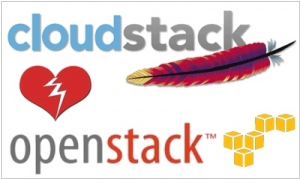
Here is the news digest from the leading cloud platforms. First of all, the open-source platform OpenStack (aka Linux for the clouds) which had been developed for two years by the alliance of IT giants (Rackspace, NASA, Citrix, Intel, AMD, Cisco, Dell, HP, IBM ...) - finally comes to production. Since May 1, it was adapted by RackSpace for its service Rackspace Cloud Files and last week HP launched the public beta of its HP Cloud platform, based on OpenStack. However, a week before the launch the trouble (common for open-source projects) occurred with OpenStack. Citrix, which has been one of the first participants in OpenStack, suddenly decided to grant its own cloud platform - CloudStack - to Apache Software Foundation. Thus, CloudStack not flowed into OpenStack but became a rival project. Citrix explained this decision by the slow OpenStack development and unwillingness of other parties to integrate with Amazon Web Services APIs. ***


